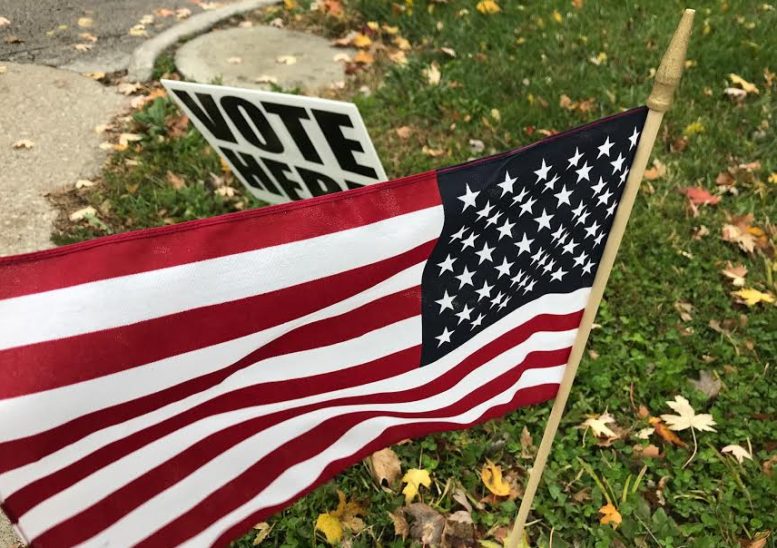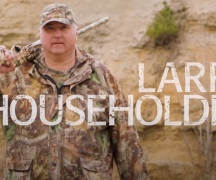The Ohio House of Representatives approved legislation Thursday that would prevent executive officials from altering Election Day plans and also shortens the amount of time Ohioans have to request an absentee ballot prior to an election.
The bill passed on a party-line vote, with Republicans, including State Rep. Haraz Ghanbari (R-Perrysburg), voting in favor and Democrats voting against.
Democrats had sounded the alarm about House Bill 680 earlier this week; in its original form, the bill included a number of additional components that critics said rolled back voter access in Ohio.
The bill was heavily amended during a marathon committee hearing Wednesday, with Republicans agreeing to remove several of those components.
HB 680 will require similar support from the Ohio Senate and be signed by Gov. Mike DeWine in order to become law.
As passed by the Ohio House, the bill:
- Prohibits DeWine, Ohio Department of Health Director Dr. Amy Acton and any other future public official from “causing an election to be conducted other than the time, place, and manner prescribed by the Revised Code.”
- Shortens the absentee ballot request deadline from the Saturday (three days) before an election to being a full week before an election. In other words, the deadline was rolled back by four days time.
- Prohibits the Ohio Secretary of State from including prepaid postage on any absentee ballot applications (“or on any absentee ballots themselves”).
This legislation was prompted by Ohio’s primary election, which was postponed by DeWine and Acton just hours before the polls were set to open due to health concerns related to the new coronavirus.
That action led the Ohio legislature to set a new plan for the primary election: an all-mail system (with limited exceptions) that ended on April 28. Some Republican lawmakers have since criticized DeWine and Acton for having intervened, and this bill would not allow them to do so again this November should a new wave of the virus return before the General Election.
A state law remains allowing the governor to postpone an election “in the event of an emergency resulting from enemy attack.”
The original draft of HB 680 allowed for state officials to seek election changes months ahead of time with legislative approval, but that contingency option was removed. The bill also included several provisions Democrats took issue with that were eventually taken out: eliminating several days of early in-person voting; rolling back absentee voting time for military personnel and overseas voters; and prohibiting the secretary of state from mailing unsolicited absentee ballot applications, which has been standard practice in Ohio in recent years.
The bill’s main sponsor, state Rep. Cindy Abrams, R-Harrison, said on the House floor the adjustment made a “good bill better.” She defended the provision prohibiting prepaid postage as being an effort to make a financial cut during “lean fiscal times.”

This bill is one of an array of voting plans presented by both parties and by Secretary of State Frank LaRose in recent weeks. As the Capital Journal has reported, some of these ideas deal specifically with planning ahead if COVID-19 impacts the General Election, while others deal more broadly with reforming the entire election system in Ohio.
House Democrats have introduced their own separate billcalling for reforms. During Wednesday’s hearing on HB 680, Democrats on the State and Local Government Committee proposed several amendments that would’ve included some components they have called for. There were further attempts by Democrats to amend the bill Thursday on the House floor, with Republicans similarly blocking these changes from being enacted.
One example involves letting Ohioans request an absentee ballot on the secretary of state’s website. Prospective voters can already register to vote online, but ballot requests must come through the mail.
LaRose, a Republican who oversees the state election system, has been a vocal supporter of allowing online ballot requests. He is also a supporter of prepaid postage for voting mailers and of allowing a county to expand its early in-person voting to numerous locations, instead of just at the Board of Elections office.
Despite that, the Republicans on the committee rejected an amendment to add online ballot requests to the bill. And as mentioned, the bill expressly prohibits him from paying voters’ postage.
Nevertheless, LaRose testified in favor of HB 680 on Wednesday. The Secretary noted his disagreement with some aspects of the bill, but described wanting to take what he could get. One provision he agrees with is setting the absentee ballot request deadline at seven days before an election, ostensibly to give the U.S. Postal Service enough time to send ballots to voters and return them to elections boards.
Voter rights groups testified against the bill, including the ACLU of Ohio and the League of Women Voters of Ohio.
Below is a chart highlighting the proposals made in the Ohio General Assembly and by Secretary LaRose:
General Election 2020/Ohio Election Reform – Proposals
There are many proposals being made on how Ohio can conduct a safe, fair General Election this November amid the COVID-19 pandemic. There are also plans to reform Ohio’s election system going forward.
| Person/Group | Allow Online Requests for Absentee Ballots? | Include Postage-Paid Envelopes With Mailings? | Mail Ballots Directly Without Absentee Request Step? | Better Funding to County Boards of Elections? | In-Person Voting on Election Day? | Expand Early In-Person Voting To More Than One Location? | Expand # of Drop Boxes To Deliver Absentee Ballots? | Expand List of People Who Can Turn In Absentee Ballots? |
|---|---|---|---|---|---|---|---|---|
| House Bill 680 (GOP Rep. Abrams) | No | No | No | Yes | Yes | No | No | No |
| House Bill 687 (Democrats) | Yes | Yes | Yes | Yes | Yes | Yes | Yes | Yes |
| Ohio Secretary of State Frank LaRose | Yes | Yes | No | Yes | Yes | Yes | No | No |
| Ohio Voter Rights Coalition | Yes | Yes | Yes | Yes | Yes | Yes | Yes | Yes |
| Senate Democrats | Yes | Yes | Only if in-person voting is restricted | Yes | Yes | No | Yes | No |
The Ohio Voter Rights Coalition is comprised of a number of voting advocacy groups around the state.
Table: Tyler Buchanan, Ohio Capital Journal Get the data Created with Datawrapper





